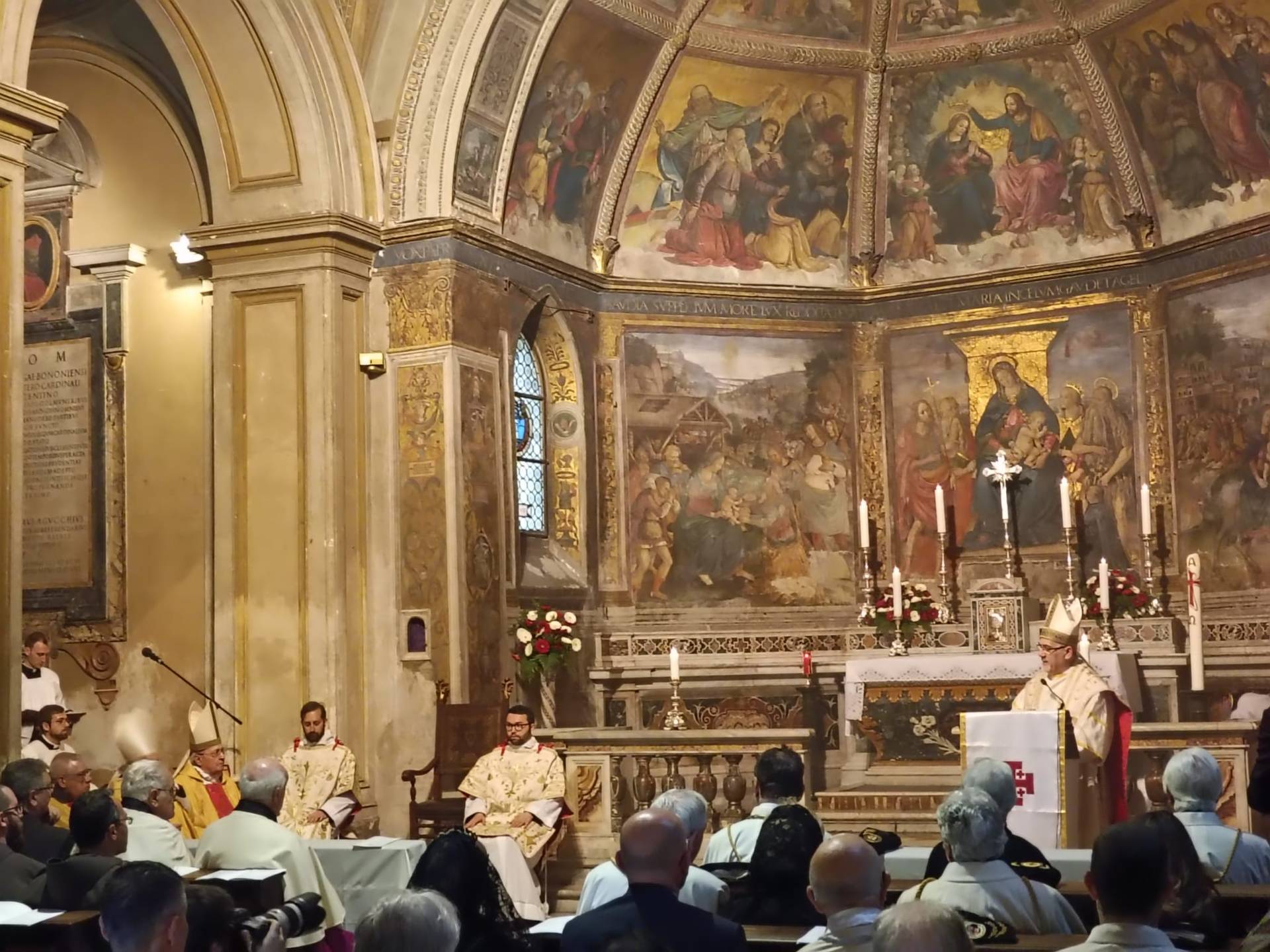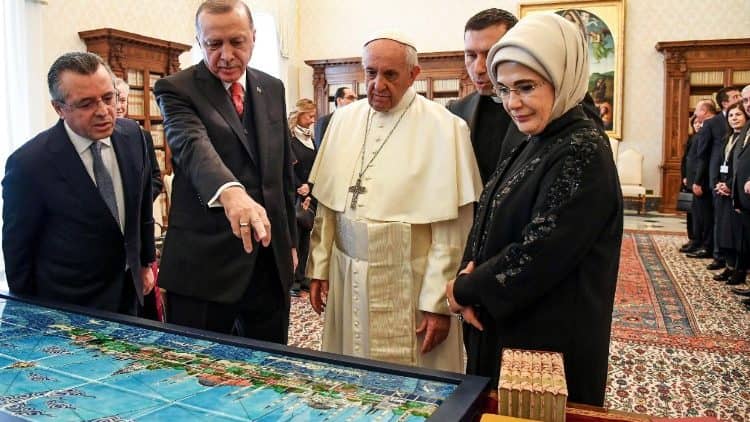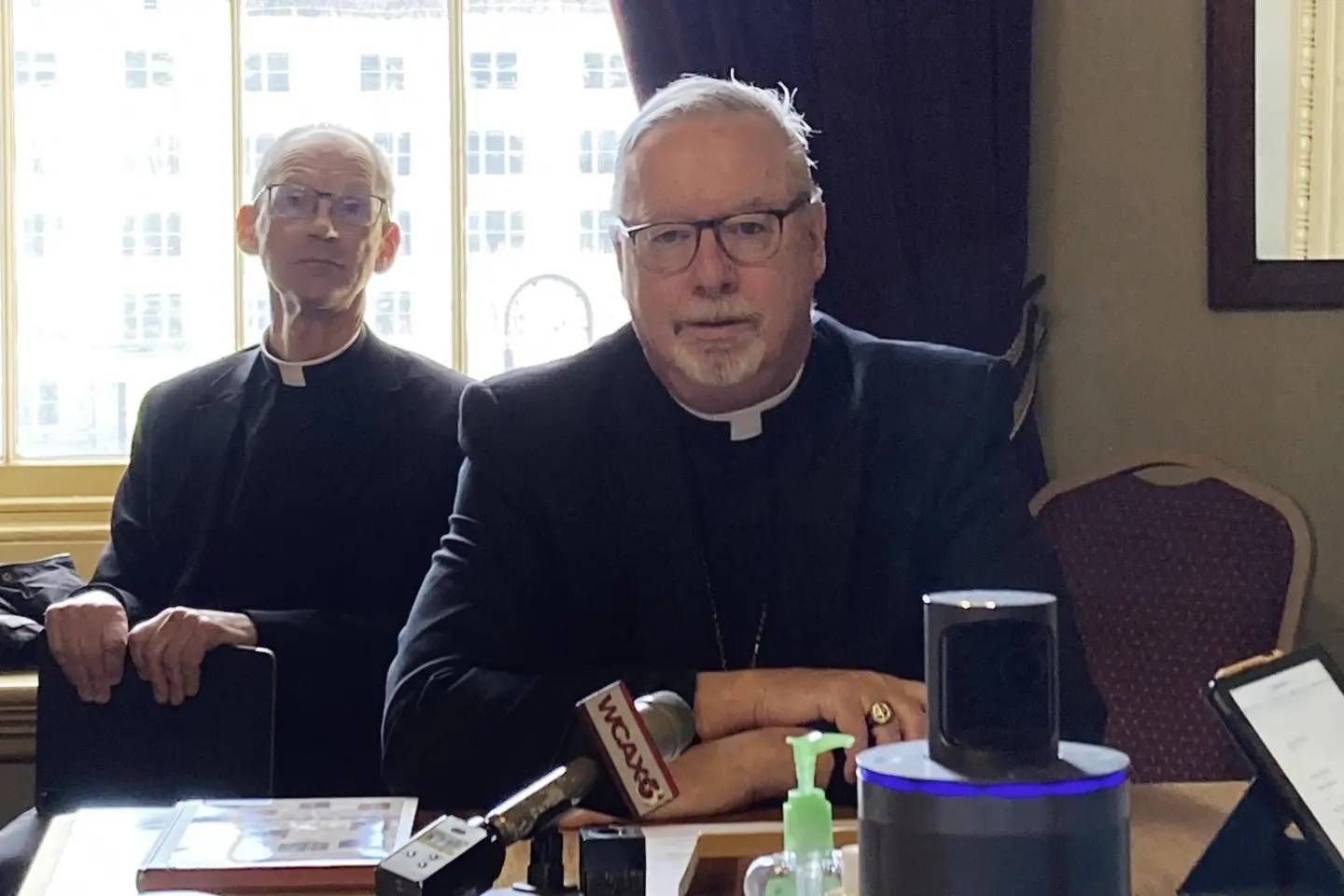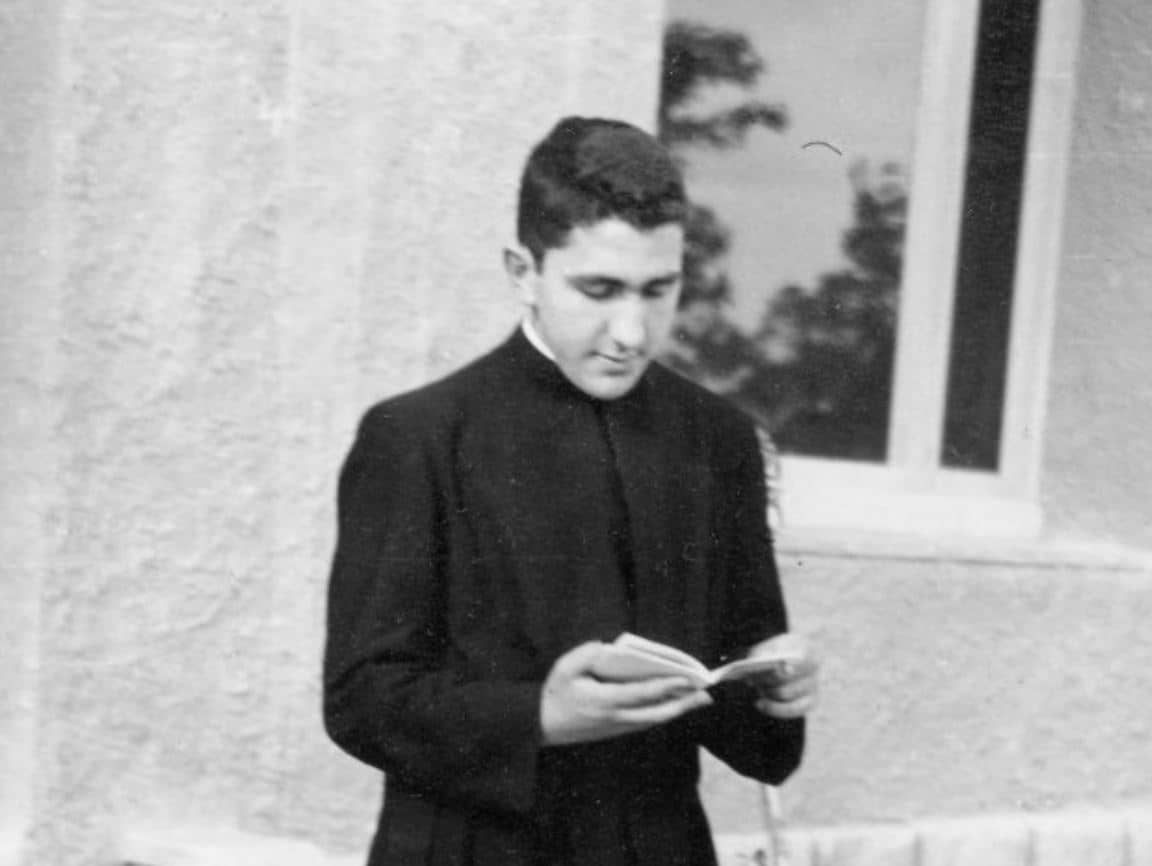Make no mistake about it: Carolyn Woo is a Pope Francis fan. She has met him several times, even traveling to Rome earlier this summer to help him unveil his major work on the environment.
But when it comes to economics, the former business school dean and head of one of the world’s largest anti-poverty NGOs winces a bit when the pope rails against capitalism — as he’s done on more than a few occasions.
As Woo, president and CEO of Catholic Relief Services, writes in her new book, “Working for a Better World”:
“Having grown up in Hong Kong amidst the large influx of refugees from the People’s Republic of China, I saw how essential business was to the advancement of people and society.”
With Pope Francis set to arrive in the United States in little more than a month, I asked Woo — who just returned from an eight-nation visit that took her to three continents to check in with CRS staffers in Guatemala, Ukraine, Rome, Bosnia, Spain, El Salvador, Nicaragua, and Ethiopia — about the pope’s critique of capitalism, and how that squares with her efforts to alleviate poverty on behalf of US Catholics.
Francis, for example, has repeatedly condemned a “throwaway culture”; while in South America last month, he urged politicians “not to yield to an economic model which is idolatrous, which needs to sacrifice human lives on the altar of money and profit.”
Woo pointed back to her childhood in Hong Kong, which “has absolutely no natural resources,” as she put it. And yet, “to see this little place be able to provide shelter and prosperity for people who had nothing but the clothes they left their home country with” was inspiring, she said.
“I saw business as a path for people to make a living and find a new home,” she said.
Woo’s most recent interaction with Francis came in June, when she was asked by the Vatican to co-present the pontiff’s encyclical on the environment, Laudato Si’, at a Vatican press conference — the only American on the panel.
Francis, she said, is a compelling figure. “The first impression you have is a grandfather who is really happy to see his grandchildren. He draws a lot of energy from meeting with people, particularly his flock,” she said. She laughed as she recalled asking him to sign her copy of the encyclical, which contains some harsh criticism of businesses that exploit people and natural resources for profit.
But Woo doesn’t see a conflict between her business background and the pope’s skepticism of capitalism. Francis’ critiques, she said, presuppose that a viable economic system exists in the first place, and the pope is simply pushing for a system that doesn’t exclude entire classes of people.
She points to the staggeringly high youth unemployment in some European countries and in Central America, where it fuels violence, gang activity, unemployment, and mass migration. Francis, not coincidentally, has highlighted youth unemployment in many speeches, and even on his Twitter account.
Inequality is the root of social evil.
— Pope Francis (@Pontifex) April 28, 2014
“How will you be able to address this issue if there is no business activity?” Woo asked. “When capitalism is done right, it can lead to other good things beyond employment, like roads for example — critical to development — banking infrastructure, the development of laws. In some cases, it could also lead to disclosure requirements. It can lead to education, the possibility of better health care.”
Still, she acknowledges that in the “pope’s treatises and encyclical, there’s a lot of scolding for capitalism, and I think we deserve a scolding.”
She described capitalism as “a tool” that can be used for good or bad. “I think it’s scary for me to see that this is a system where much good can happen and much harm can happen, and that people choose to use it for harm. That is the scary part.”
* * * * *
Woo’s life has come full circle.
Her parents fled communist China for Hong Kong when she was a child. Though relatively well off compared to others in Hong Kong at the time, the family lived alongside other refugees, and Woo learned about Catholicism from the Maryknoll Sisters who educated her and her siblings.
Many years later, Woo finds herself at the helm of the US bishops’ international poverty-relief organization, working to make the lives of refugees and others a bit more bearable.
Everything that happened in-between — enrolling sight-unseen as an international university student in Indiana and eventually transforming the business school at the University of Notre Dame as its dean — is recounted in the book.
She describes her years at Purdue University, where the Catholic student center welcomed her and where she attended daily Mass and volunteered for social activities, and where she met the folks who would eventually serve as something of a proxy family while she was away from home. She also met her future husband there.
Woo studied industrial administration and eventually earned three degrees, including a PhD, before joining the faculty and eventually rising through the ranks to a vice president post.
From there, Woo was recruited to move 100 miles north to the University of Notre Dame, where she led the Mendoza College of Business. Under her watch, the school was given a top ranking by Bloomberg Businessweek.
In “Working for a Better World,” Woo recounts her experience as an immigrant to the United States. She told me that the Catholic Church here “does an absolutely beautiful, wonderful job welcoming immigrants,” but she wishes parishes were as welcoming, from immigrants from around the world to college students from across the city.
“If you were just a new parishioner, and you moved from South Bend to Baltimore and started at a new parish, nobody would welcome you,” she said. “You could register, fill in the card, get your envelopes. But beyond that, there is not a sort of warm hand.”
Woo was appointed president and CEO of CRS in 2012, and the next year was named one of the 500 “most powerful people on the planet” by Foreign Policy magazine. She oversees an organization of 5,000 workers in 93 countries. CRS, the official international charitable arm of the US Conference of Catholic Bishops, is often already on the ground when disasters strike, meaning they are sometimes the first responders.
Still, under Woo, CRS faces criticism from both the left and right.
Conservative groups accuse CRS of collaborating with groups that promote contraception and abortion, while some liberal Catholics were dismayed with how CRS handled the employment of a gay administrator earlier this year. (He eventually resigned.)
Woo often says in speeches that CRS does not accept grant money that requires the organization to violate its religious convictions, a point she reiterates in the book. (“As CRS does not participate in any program or seek funding from any grant that involves artificial family planning …” she writes.)
She declined to comment on the specific case of the gay staffer, but she conceded that Catholic entities will have to grapple with employment issues in light of the June Supreme Court ruling that legalized same-sex marriage. Some Catholic critics fear government overreach and threats to religious liberty, while others point out that CRS and other groups shouldn’t discriminate because they receive millions of dollars each year in taxpayer money through grants.
I asked Woo, in light of the court’s ruling as well as her own experience leading CRS, how Catholic organizations might navigate the new civil landscape.
“I think it’s too early. At the same time, it’s about the availability of the protection of religious freedom,” she said. “The Church must make sure the protection of religious freedom does not go away. How the intersection of civil law and religious freedom … it’s an intersection that we’ll have to work out.”
Woo is one of the highest ranking women in the US Catholic Church, but she almost didn’t accept CRS’ invitation to throw her hat into the ring for the top job.
“Because I am of Chinese ancestry and a woman,” she writes in the book, “I am often asked to be a candidate in searches — there are significant pressures on committees and consultants to include minority and female candidates in all searches, particularly for executive officer positions.”
She usually says no to such requests, aware of the potential for tokenism, but she writes that she was assured CRS was serious about considering her. They were true to their word.
But the Church, she said, must do a better job overall of placing women in leadership posts, and she pointed to business as an example of why that’s important.
“Number one, women were going to grad school and in certain professions — law and medicine — women were half of the profession,” she said. “If you’re in competition for talent, you don’t want to ignore half the population.”
For the Church, change will happen when Catholic leadership develops the will to appoint women and minorities to key posts, she said.
“I think until the Church recognizes that it has to — and that it wants to — things will be ad hoc, but not institutional,” she said.
* * * * *
The first half of Woo’s book, published by Our Sunday Visitor, is autobiographical in nature, recalling how her deep Catholic faith drove many of the professional and personal decisions throughout her life. She talks about growing up relatively wealthy in Hong Kong, the challenges of being a girl in a patriarchal society, and the experience of leaving home to study and eventually build a life abroad.
The second half deals primarily with the work of CRS, recounting its history (it was formed to helped Polish refugees after World War II) and highlighting some of the projects it oversees across the world.
I asked Woo what she hoped readers and “Catholics in the pews” should know about CRS, which she calls the US Church’s “best-kept secret.”
“We do our work in the name of Catholics in the United States,” she said. “Many people cannot even pronounce our name, but they know we do our work in the name of the United States. God never abandons people. He turns them over into our care, and that’s a sacred trust.”













